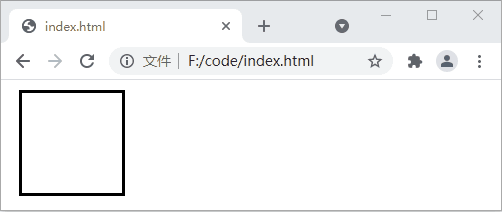CSS transition(过渡效果)详解
CSS transition(过渡效果)详解
通常当 CSS 的属性值更改后,浏览器会立即更新相应的样式,例如当鼠标悬停在元素上时,通过 :hover 选择器定义的样式会立即应用在元素上。在 CSS3 中加入了一项过渡功能,通过该功能您可以将元素从一种样式在指定时间内平滑的过渡到另一种样式,类似于简单的动画,但无需借助 flash 或 JavaScript。
CSS 中提供了 5 个有关过渡的属性,如下所示:
- transition-property:设置元素中参与过渡的属性;
- transition-duration:设置元素过渡的持续时间;
- transition-timing-function:设置元素过渡的动画类型;
- transition-delay:设置过渡效果延迟的时间,默认为 0;
- transition:简写属性,用于同时设置上面的四个过渡属性。
要成功实现过渡效果,必须定义以下两项内容:
- 元素中参数与过渡效果的属性;
- 过渡效果持续的时间。
提示:过渡效果通常会在鼠标悬停在元素上时发生,如果未设置过渡持续的时间,则过渡效果不会生效,因为过渡时间的默认值为 0。
1、transition-property
transition-property 属性用来设置元素中参与过渡的属性名称,语法格式如下:
transition-property: none | all | property;
参数说明如下:
- none:表示没有属性参与过渡效果;
- all:表示所有属性都参与过渡效果;
- property:定义应用过渡效果的 CSS 属性名称列表,多个属性名称之间使用逗号,进行分隔。
示例代码如下:
DOCTYPE html>
<html>
<head>
<style>
div {
width: 100px;
height: 100px;
border: 3px solid black;
margin: 10px 0px 0px 10px;
transition-property: width, background;
}
div:hover {
width: 200px;
background-color: blue;
}
style>
head>
<body>
<div>div>
body>
html>
2. transition-duration
transition-duration 属性用来设置过渡需要花费的时间(单位为秒或者毫秒),语法格式如下:
transition-duration: time;
其中,time 为完成过渡效果需要花费的时间(单位为秒或毫秒),默认值为 0,意味着不会有效果。
如果有多个参与过渡的属性,也可以依次为这些属性设置过渡需要的时间,多个属性之间使用逗号进行分隔,例如transition-duration: 1s, 2s, 3s;。除此之外,也可以使用一个时间来为所有参与过渡的属性设置过渡所需的时间。示例代码如下:
DOCTYPE html>
<html>
<head>
<style>
div {
width: 100px;
height: 100px;
border: 3px solid black;
margin: 10px 0px 0px 10px;
transition-property: width, background;
transition-duration: .25s, 1s;
}
div:hover {
width: 200px;
background-color: blue;
}
style>
head>
<body>
<div>div>
body>
html>
3. transition-timing-function
transition-timing-function 属性用来设置过渡动画的类型,属性的可选值如下:
| 值 | 描述 |
|---|---|
| linear | 以始终相同的速度完成整个过渡过程,等同于 cubic-bezier(0,0,1,1) |
| ease | 以慢速开始,然后变快,然后慢速结束的顺序来完成过渡过程,等同于 cubic-bezier(0.25,0.1,0.25,1) |
| ease-in | 以慢速开始过渡的过程,等同于 cubic-bezier(0.42,0,1,1) |
| ease-out | 以慢速结束过渡的过程,等同于 cubic-bezier(0,0,0.58,1) |
| ease-in-out | 以慢速开始,并以慢速结束的过渡效果,等同于 cubic-bezier(0.42,0,0.58,1) |
| cubic-bezier(n, n, n, n) | 使用 cubic-bezier() 函数来定义自己的值,每个参数的取值范围在 0 到 1 之间 |
示例代码如下:
DOCTYPE html>
<html>
<head>
<style>
div {
width: 100px;
height: 100px;
border: 3px solid black;
margin: 10px 0px 0px 10px;
transition-property: width, background;
transition-duration: .25s, 1s;
transition-timing-function: ease;
}
div:hover {
width: 200px;
background-color: blue;
}
style>
head>
<body>
<div>div>
body>
html>
4. transition-delay
transition-delay 属性用来设置过渡效果何时开始,属性的语法格式如下:
transition-delay: time;
其中,参数 time 用来设置在过渡效果开始之前需要等待的时间,单位为秒或毫秒。
示例代码如下:
DOCTYPE html>
<html>
<head>
<style>
div {
width: 100px;
height: 100px;
border: 3px solid black;
margin: 10px 0px 0px 10px;
transition-property: width, background;
transition-duration: .25s, 1s;
transition-delay: 3s;
}
div:hover {
width: 200px;
background-color: blue;
}
style>
head>
<body>
<div>div>
body>
html>
5. transition
transition 属性是上面四个属性的简写形式,通过该属性可以同时设置上面的四个属性,属性的语法格式如下:
transition: transition-property transition-duration transition-timing-function transition-delay;
transition 属性中,transition-property 和 transition-duration 为必填参数,transition-timing-function 和 transition-delay 为选填参数,如非必要可以省略不写。另外,通过 transition 属性也可以设置多组过渡效果,每组之间使用逗号进行分隔,示例代码如下:
DOCTYPE html>
<html>
<head>
<style>
div {
width: 100px;
height: 100px;
border: 3px solid black;
margin: 10px 0px 0px 10px;
transition: width .25s linear 1.9s, background 1s 2s, transform 2s;
}
div:hover {
width: 200px;
background-color: blue;
transform: rotate(180deg);
}
style>
head>
<body>
<div>div>
body>
html>
上面的代码也可以写成如下所示的样子:
DOCTYPE html>
<html>
<head>
<style>
div {
width: 100px;
height: 100px;
border: 3px solid black;
margin: 10px 0px 0px 10px;
transition-property: width, background, transform;
transition-duration: .25s, 1s, 2s;
transition-timing-function: linear, ease, ease;
transition-delay: 1.9s, 2s, 0s;
}
div:hover {
width: 200px;
background-color: blue;
transform: rotate(180deg);
}
style>
head>
<body>
<div>div>
body>
html>


